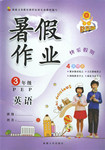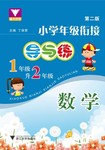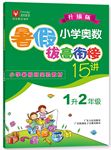题目内容
Until just a few years ago,we doctors believed that the brain stopped making new neural(神经系统的)connections (meaning that your memory began to get worse)when the body stopped developing,usually in your early 20s. And we knew that,like any other body part,neurons weaken as we age. Loss of brain function due to neural breakdown was assumed to be a normal,unavoidable part of aging.
It turns out that we were wrong. In the past few years,it has been discovered that you can,in fact,make new neurons starting in your 20s and continuing well into old age. You can literally rewire the brain with new parts as the older parts wear out. How?Simple:Keep learning. Just as your body can pack on and condition new muscle,your brain can rebuild used-up neurons.
How strong is the evidence for this?Strong enough that a $200 million industry devoted to brain boosting software (products like Brain Age,MindFit,and Lumosity that supposedly improve your memory function)has sprung up out of nowhere. All“mental fitness”means are keeping your memory intact(everything from phone numbers to how to throw a football).So what can you do to stay smart?
Keep blood pressure down. People with high blood pressure are more likely to develop cognitive impairment later in life.
Eat more vitamins. Like E(in nuts and sunflower seeds),B6 and B12(beef,tuna),and folic acid(leafy greens,citrus,berries),which help keep your brain’s chemistry in balance.
Exercise your brain. This is the best way to rebuild and strengthen those precious neurons. Learn to play chess or the guitar. When you’re at a stoplight,try to recall the starting lineup of the 1983 Celtics. See a movie that doesn’t feature Ben Stiller. Or read,like,a book.
Title:How to keep the1.________smart?
Previous 2._________ | The brain no longer makes new neural connections once the 3.________ of one’s body has stopped. |
New 4. ________
| ●New neurons continue to occur even in one’s old age. ●5.________contributes to the development of the new parts of your brain. ●Many products which claim to improve your brain function appear in the 6._________. |
7._________ | ●Keep yourself away from 8._________blood pressure. ●9._________in more vitamins for the needs of your brain. ●10.________your brain as much as you can. |
1.brain
2.belief
3.growth/development
4.discoveries
5.Learning
6.market
7.Advice/Suggestions/Tips
8.high
9.Take
10.Use/Exercise
【解析】
试题分析:本文主要是讲述关于如何使得大脑能够保持灵活和聪明 ,并就如何保持大脑的聪明给出一些建议。
1.1】原词重现题:第一段的第一句提到the brain stopped making new neural,而后文在论述如何保持大脑的活力,所以填名词brain。
2.2】词性转化题:第一段提到了we doctors believed that the brain stopped making new neural,说明以前的观点是这样的,但是此处要将动词改为名词,填belief。
3.3】词性转化题:第一段中提到了when the body stopped developing在身体不会继续生长的时候,大脑也不会生长了可知,此处要填写的,是表示生长的词汇。但是此处需要填写名词,所以写development或者growth皆可。
4.4】词性转化题:第二段中提到了it has been discovered that you can,说明了这种观点被发现了,此处则需要一个名词表示新的发现,所以填discoveries。
5.Keep learning,所以此处填写名词Learning。
6.
7.So what can you do to stay smart?表示我们能够为保持聪明做一些什么事情,所以下面应该就会提一些我们能够做的来让我们保持聪明的建议。所以本空应该填Advice/Suggestions/Tips。
8.Keep blood pressure down 保持血压较低,也就是说血压不能过高,故此处填high。
9.Eat more vitamins可以知道,建议要多吃维他命,所以本空应该填Take
10.Exercise your brain.所以本空的答案应该是Use/Exercise。
考点:考查任务型阅读。

 学练快车道快乐假期暑假作业新疆人民出版社系列答案
学练快车道快乐假期暑假作业新疆人民出版社系列答案 浙大优学小学年级衔接导与练浙江大学出版社系列答案
浙大优学小学年级衔接导与练浙江大学出版社系列答案 小学暑假作业东南大学出版社系列答案
小学暑假作业东南大学出版社系列答案 津桥教育暑假拔高衔接广东人民出版社系列答案
津桥教育暑假拔高衔接广东人民出版社系列答案 波波熊暑假作业江西人民出版社系列答案
波波熊暑假作业江西人民出版社系列答案